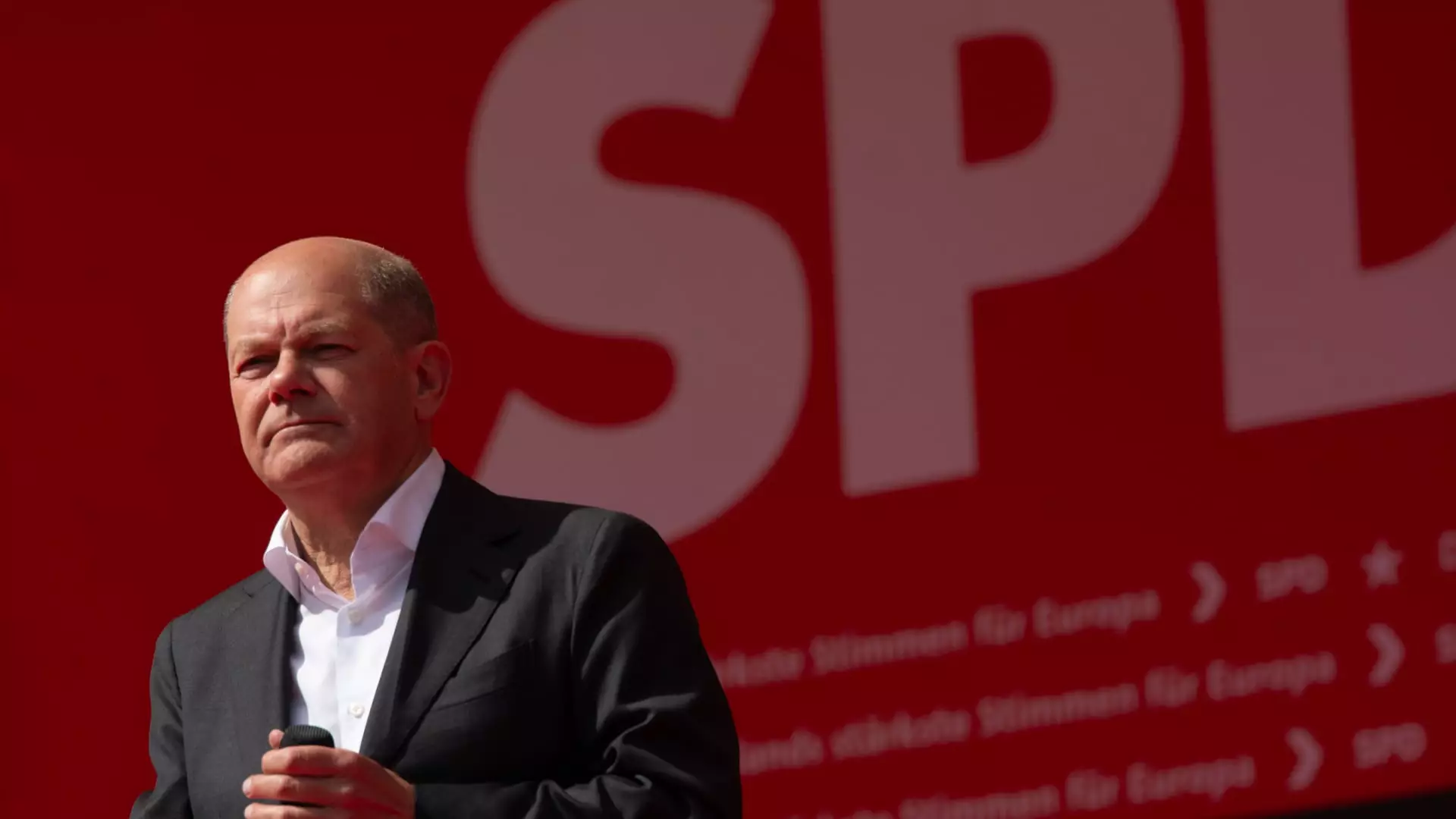In the wake of the recent European Union election, German Chancellor Olaf Scholz finds himself under intense pressure as the far-right AfD party managed to secure a substantial 15.9% of the vote. This victory for the AfD comes in the face of multiple scandals and setbacks, signaling a shift in the political landscape of Germany.
Scholz’s SPD, along with its coalition partners – the Greens and the FDP, faced significant losses in this election. The SPD, which won just 13.9% of the vote, saw a decrease in support from the previous election. Meanwhile, the Green party experienced a sharp decline in support from 20.5% in 2019 to 11.9% in 2024. The FDP, on the other hand, only saw a minor decrease with 5.2% of the votes.
The results of the EU election have shifted the power dynamics in Germany, with the CDU emerging as the strongest party with 23.7% of support. This outcome is a blow to Scholz’s government, which has been grappling with various crises including a struggling economy, budget issues, and concerns about the rise of the far right in the country.
Despite its electoral success, the AfD has been facing internal challenges in recent weeks and months. The party was expelled from the right-wing Identity and Democracy alliance in the EU parliament after controversial statements made by its lead candidate, Maximilian Krah. Additionally, allegations of bribery and money laundering linked to Russia were leveled against Petr Bystron, the AfD’s second-in-line for the European Parliament.
Marcel Fratzscher, president of the German Institute for Economic Research, expressed concerns about the ruling coalition’s stability in the aftermath of the election results. He highlighted that the coalition, which was already fragile, is now further destabilized by the AfD’s gains. However, Holger Schmieding, chief economist at Berenberg, believes that the coalition is unlikely to call for early elections despite potential setbacks in regional elections in September.
Chancellor Olaf Scholz faces a challenging road ahead as he navigates the aftermath of the EU election and grapples with the shifting political landscape in Germany. The rise of the far-right AfD poses a significant threat to the stability of the ruling coalition, raising questions about the future direction of German politics.


Leave a Reply